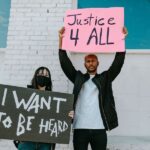A critical mass of courts — including the three Circuit Court of Appeals to have so far addressed the issue — find that it constitutes unconstitutional viewpoint discrimination in violation of the First Amendment for a public official who operates an interactive social media account in their capacity as a state actor to deny individuals access to that account based on dislike of or disagreement with their speech.
Viewpoint Discrimination in a Virtual Public Forum: When Government Officials Block Citizens on Social Media authored by Clinic Director Clare Norins and UGA law student Mark Bailey, discusses the elements of the First Amendment claims that arise from social media blocking, the factors that courts consider in adjudicating these claims, and immunity issues. The paper concludes with considerations for avoiding First Amendment complaints in connection with public officials’ social media use.*
*Current as dated and not intended to be legal advice.
The Issue
The First Amendment protects speech on social media platforms that have been designated as public forums by government officials or agencies. Government officials cannot block individuals from accessing their social media pages simply because the government dislikes or disagrees with their speech. Read more about our work protecting citizen speech here.
Explore Issue
The Issue
The First Amendment protects the right of private individuals to engage in speech and expression without being censored or punished by the government because of their viewpoint. While the government may constitutionally regulate the time, place, and manner of private speech in public forums it must do so in a viewpoint-neutral manner and, depending on…
Explore Issue



